Ezedoc 10 mg
Ezedoc 10mg is a cholesterol-lowering medicine that is most commonly used to treat high cholesterol. Cholesterol is a waxy substance produced by the liver for the protection of nerves, the formation of tissue, and the production of numerous hormones. Cholesterol is also obtained through the foods we eat, such as cooking oils, eggs, meats, and dairy products. ‘Bad cholesterol’ (low-density lipoprotein (LDL) and triglycerides (TG)) and ‘good cholesterol’ (high-density lipoprotein (HDL)) are the two forms of cholesterol.
Ezedoc 10mg is a cholesterol absorption inhibitor that contains Ezetimibe. It reduces cholesterol absorption in the intestine and lowers the level of bad cholesterol in the blood, effectively lowering the amount of cholesterol in the blood. As a result, the risk of heart disease is reduced, and people are healthier.
Follow your doctor’s instructions for taking Ezedoc 10mg. Depending on your medical condition, you should take Ezedoc 10mg for as long as your doctor has given it. Abdominal pain, diarrhoea, flatulence, fatigue, joint pain, and respiratory tract infection are the most prevalent side effects of Ezedoc 10mg. They don’t require medical care and will go away on their own. However, if the negative effects do not go away, consult your doctor.
Ezedoc 10mg may cause skeletal muscle tissue disintegration, which can lead to renal failure. This issue is most common in the elderly, persons who have kidney illness, and people who have hypothyroidism that isn’t well controlled (underactive thyroid). Ezedoc 10mg should not be given to children under the age of ten. If you have had an allergic reaction to Ezedoc 10mg, if you have liver or kidney problems, if you are pregnant or planning to become pregnant, if you are breastfeeding, if you have severe lung disease, if you have had a previous heart attack or stroke caused by bleeding in the brain, if you have hypothyroidism, if you drink more than 2 servings of alcohol per day, or if you have a muscle disorder, you should consult a doctor before taking this medication (fibromyalgia). Ezedoc 10mg’s effectiveness can be boosted by consuming low-fat or cholesterol-containing foods and beverages.
Ezedoc 10mg is used to treat high cholesterol.
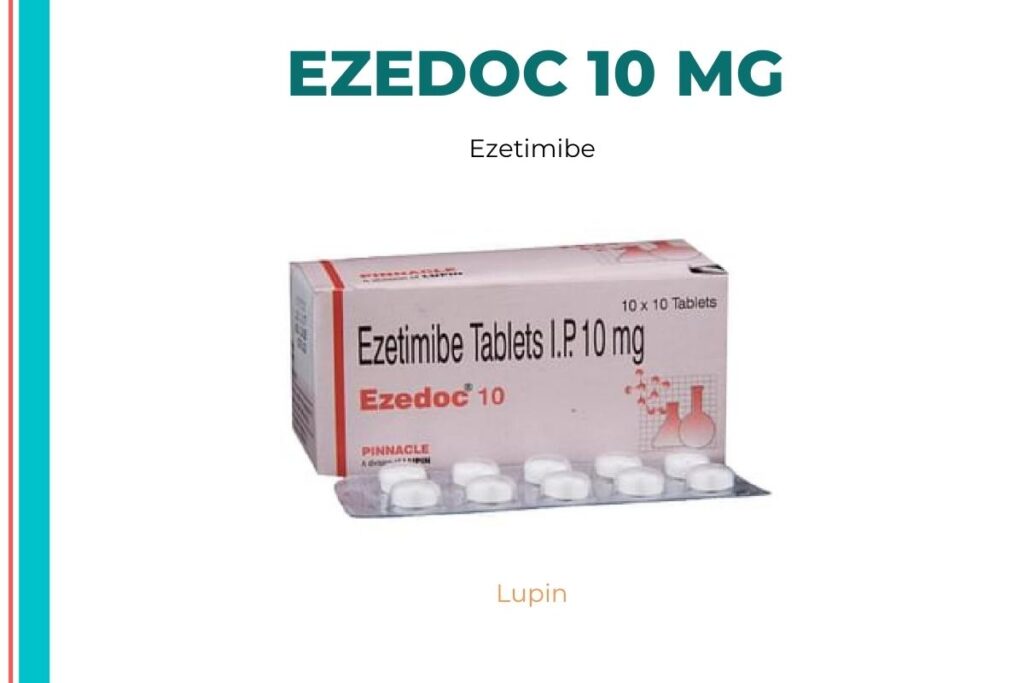
Medicinal Advantages
Ezedoc 10mg is a cholesterol-lowering medicine that is most commonly used to treat high cholesterol. Cholesterol is a waxy substance produced by the liver for the protection of nerves, the formation of tissue, and the production of numerous hormones. Ezedoc 10mg is a cholesterol absorption inhibitor that contains Ezetimibe. It reduces cholesterol absorption in the intestine and lowers the level of bad cholesterol in the blood, effectively lowering the amount of cholesterol in the blood. As a result, the risk of heart disease is reduced, and people are healthier.
Use Instructions
It is possible to take Ezedoc 10mg with or without food. Ezedoc 10mg tablets should be consumed whole with a glass of water; do not chew or crush them.
Storage
Store in a cool, dry location away from direct sunlight.
Ezedoc 10mg Side Effects
Pain in the abdomen
Diarrhea
Flatulence
I’m exhausted.
Joint discomfort
Infection of the respiratory tract
Drug Recommendations
If you are allergic to Ezetimibe or any of its constituents, do not take it. If you have liver or kidney problems, or myopathy, you should not use ezetimibe (muscle disease). You should get a blood test to evaluate liver enzymes if you’re using Ezetimibe with another cholesterol-lowering medicine, especially a statin. Take Ezetimibe 4 hours before or 2 hours after Ezedoc 10mg if you’re taking additional cholesterol-lowering medications (cholestyramine, colesevelam, colestipol).
Interactions Between Drugs
Ezetimibe is known to interact with organ transplant medicine (cyclosporine), anticoagulants (warfarin, phenprocoumon, fluindione), cholesterol-lowering medicines (atorvastatin, rosuvastatin, simvastatin), and blood thinners (warfarin, phenprocoumon, fluindione) (aspirin).
Ezetimibe has been documented to interact with liver or renal illness, as well as myopathy (muscle disease).
No drug-food interactions have been discovered.
Safety Suggestions
ALCOHOL
If you’re taking this medication, don’t drink too much. You may be more prone to muscular and liver side effects if you consume a lot of alcohol.
PREGNANCY
Ezetimibe should not be used during pregnancy. Before taking Ezedoc 10mg, talk to your doctor.
BREAST FEEDING
Ezetimibe should not be used when nursing. Before taking Ezedoc 10mg, talk to your doctor.
DRIVING
Ezetimibe does not impair eyesight or cause drowsiness, hence it is not known to have an effect on driving.
LIVER
Ezetimibe should only be used with caution if you have a history of liver illness. Depending on your medical condition and response to therapy, your doctor may need to adjust your dosage.
KIDNEY
Ezetimibe should be used with caution, especially if you have had renal illness in the past. Depending on your medical condition and response to therapy, your doctor may need to adjust your dosage.
No habit formation
Advice on Diet and Lifestyle
To assist relax your body and mind, try aromatherapy, yoga, or meditation.
To get more oxygen, try doing breathing exercises.
Consume soluble fiber-rich foods such as beans, lentils, whole grains, flax, apples, and citrus fruits.
Replace the majority of your saturated fats with unsaturated fats to lower total and LDL cholesterol in a short period of time. Avocados, olive oil, fatty salmon, and almonds are high in heart-healthy unsaturated fats, thus eating them on a daily basis is good.
Make an effort to eat a Mediterranean-style diet that is high in olive oil, fruits, vegetables, nuts, whole grains, fish, and low in red meat and most dairy products.
Increase the amount of fruits and vegetables in your daily diet because they include antioxidants that aid to lower LDL cholesterol.
Reduce the amount of sugar you consume. The American Heart Association (ADA) recommends that women and children consume no more than 100 calories (25 grams) of added sugar per day, and men consume no more than 150 calories (37.5 grams).
As part of a balanced eating pattern, the American Heart Association recommends that sodium chloride (table salt) intake not exceed 2,300 mg per day.
Avoid consuming alcohol and quitting smoking as a precaution.
Recommendations
If you’re taking Ezetimibe with a statin, you should get a blood test to check your liver enzymes.
Additional Information: This item is non-refundable.
Glossary of Diseases and Conditions
Cholesterol is a waxy substance produced by the liver for the protection of nerves, the formation of tissue, and the production of numerous hormones. Cholesterol is also obtained through the foods we eat, such as cooking oils, eggs, meats, and dairy products. Cholesterol in excess is harmful to our health. ‘Bad cholesterol’ and ‘good cholesterol’ are the two forms of cholesterol. Low-density lipoprotein (LDL) and triglycerides (TG) are bad cholesterol, whereas high-density lipoprotein (HDL) is healthy cholesterol (HDL). Raised or high cholesterol levels are usually accompanied with a substantial accumulation of cholesterol in the arteries (plaque) or a cardiac blockage. Chest pain (angina), heart attack, or stroke can all be caused by a blocked artery or plaque buildup in the arteries of the heart. As a result, comprehensive cholesterol tests (lipid profile tests) should be done at least once a year. It will assist you in keeping a close eye on your heart health and the risk of a heart attack or stroke.
FAQs
Ezetimibe is a cholesterol absorption inhibitor that contains Ezetimibe. It reduces cholesterol absorption in the intestine and lowers bad cholesterol levels in the blood, effectively lowering cholesterol levels in the blood. As a result, the risk of heart disease is reduced, and people are healthier.
When combined with another cholesterol-lowering drug, particularly a statin, ezetimibe can induce a rise in liver enzymes. However, when used alone, the chances of an increase in liver enzymes are extremely unlikely.
Ezetimibe is primarily intended to lower blood cholesterol levels, therefore avoid high-cholesterol foods like chips, burgers, and fried foods for optimal results. Eat a low-fat, low-cholesterol diet, such as home-cooked meals.
People with liver or renal problems, as well as muscle weakness (myopathy), should avoid taking Ezetimibe because it could make their condition worse.


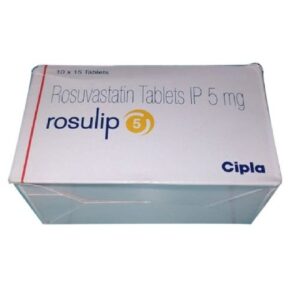
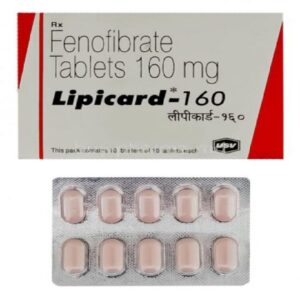
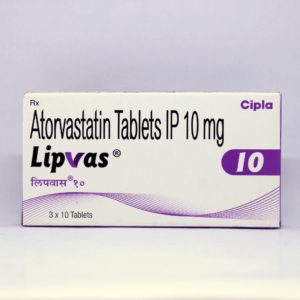
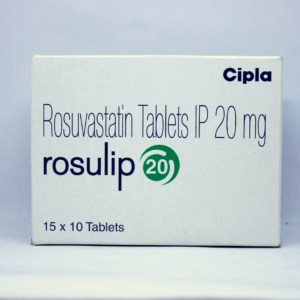

Leave a Reply
You must be logged in to post a comment.